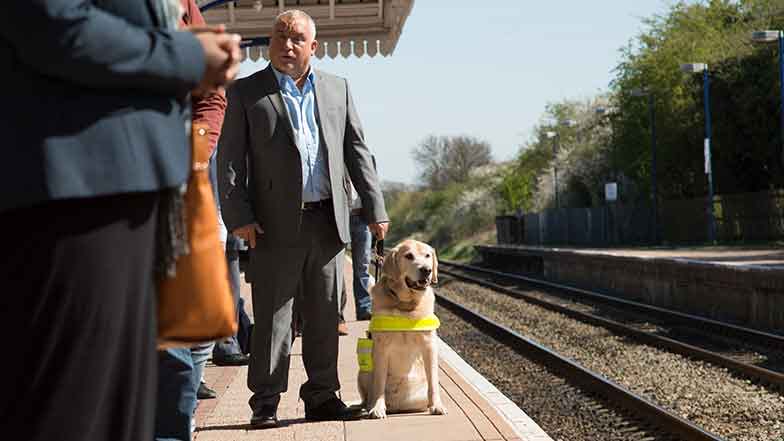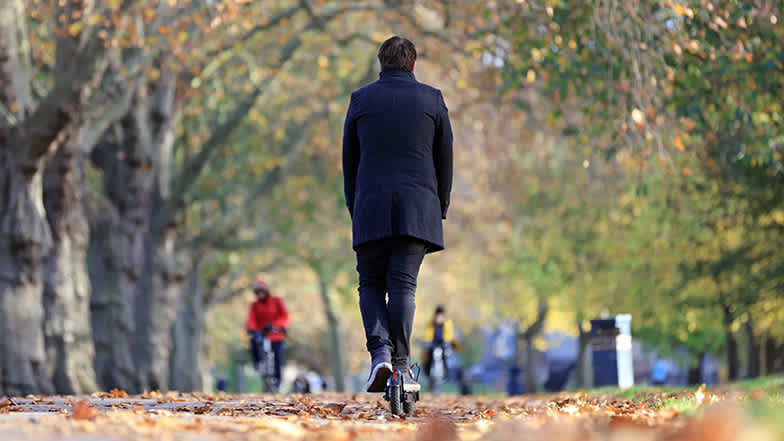Answering your frequently asked questions
Some updates to the Highway Code (applying to England, Scotland and Wales) came into force on 29 January 2022 that put greater emphasis on the safety of vulnerable road users and pedestrians.
We’ve had a few guide dog owners come to us with questions about these changes, and how they will affect working their guide dogs. Here are our responses to some of your most common questions:
Should I change my behaviour when crossing the road?
As there is not yet widespread public awareness of these changes, we're currently recommending that you don't change your behaviour when crossing the road. You should take control of the situation and only cross when you feel it is safe to do so. In many cases, not proceeding in front of vehicles at junctions will remain the safest option, including when traffic is giving way to you.
What should I do if a vehicle stops for me to cross?
We recommend that you take control of the situation and are clear to the motorist about your intention. For example, waving the car on or stepping away from the kerb edge are clear signals that you're not prepared to proceed.
It's often safer for people with a vision impairment to ‘indent’ further into a side road before deciding to cross. However, each person and situation are unique, and thus it's only possible to offer general guidance and advice.
Can I rely on drivers to follow the new rules?
As there is not yet widespread public awareness of these changes, we currently recommend that you don't change your behaviour when crossing the road. Whilst one driver may follow the new guidance, other drivers may not – you should not assume that you are totally safe to proceed when a single car offers to give way to you.
Will the updated Highway Code lead to changes in how guide dogs are trained?
No, we won’t need to change how our dogs are trained as the updated Code will make little difference to their understanding of safety in traffic. Our dogs are taught to be aware of moving vehicles and respond to any that may present a threat to safety. However, it's the person who takes the responsibility for safe places and times to cross the road.
Stationary vehicles are not a threat to safety and our dogs already cross in front of cars that stop and give way at zebra and pelican crossings. Dogs are unlikely to interpret these differently to any other road when car drivers attempt to follow the new code.
Have the rules changed around cyclists and pedestrians?
Under the updated Code, cyclists have a responsibility to reduce danger to pedestrians and should also give way to pedestrians crossing or waiting to cross a road at junctions. However, as there isn't yet widespread public awareness of these changes, we are currently recommending that you don't change your behaviour when crossing the road.
Where can I get more information about the new Highway Code?
The updated Code is on the GOV.UK website.


